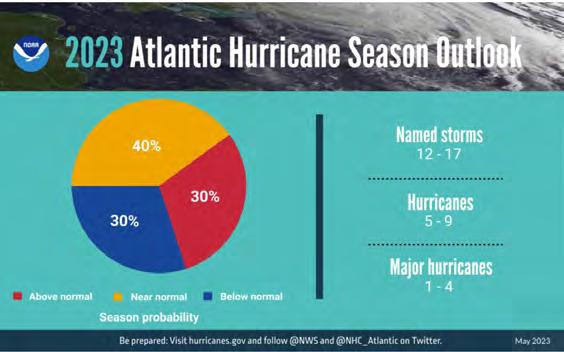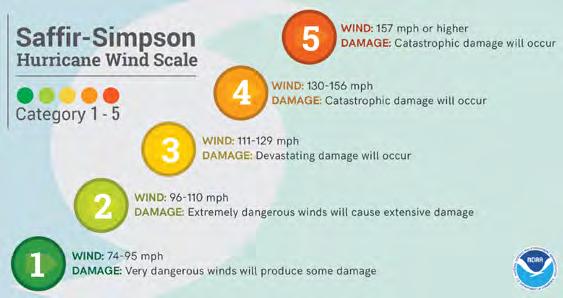
4 minute read
Estate Planning When There's a Chronic Illness
My father’s Alzheimer’s has progressed to the point where he cannot recognize me or other family members. He never completed an estate plan. What are my options to be able to pay his bills and make health care decisions for him? I am an only child and feel overwhelmed.
The first issue to consider is whether your father has the legal capacity to execute a Power of Attorney (which would enable you to handle his finances) and a Health Care Proxy (which would allow you to make medical decisions for him if he’s unable). While legal capacity is often a gray area, the test is whether the individual is able to comprehend the nature and consequences of the documents he/she is signing.
Advertisement
If your father lacks legal capacity, which seems to be the case as he cannot recognize you or your family members, your remaining options are limited. You may still be able to pay his bills to the extent you are named as a joint-owner on any of his bank accounts. However, your authority would be limited to any such jointly-owned accounts and without a Power of Attorney you wouldn’t be able to handle any other assets or apply for government benefits on his behalf, to name a few examples.
The only remaining option would be to file a petition for the Court to appoint you as your father’s legal guardian pursuant to Article 81 of New York’s Mental Hygiene Law. This would involve the filing of the petition and order to show cause with the Court and then serving these papers on all interested parties such as his wife, siblings, and parents, if living. All the parties involved will then be interviewed by the Court Evaluator who will submit a report to the Court to inform its decision as to whether a guardian is necessary and, if so, what powers the guardian
BY VINCENT PICA, COMMODORE
As of June 1, hurricane season is upon us. Almost without exception, we get the tail, shoulder or rump of one or two of the dozen or so that form up in the Atlantic between the Caribbean and Africa and bring so much destruction and misery with them as they thunder west and north…
Many of us live on an island. And now an “average” season is worse than ever. This column is about that.
NOAA predicts a nearnormal 2023 Atlantic Hurricane Season

NOAA forecasters with the Climate Prediction Center, a division of the National Weather Service, predict nearnormal hurricane activity in the Atlantic this year. NOAA’s outlook for the 2023 Atlantic hurricane season, which goes from June 1 to November 30, predicts a 40% chance of a nearnormal season, a 30% chance of an above-normal season and a 30% chance of a below-normal season.
NOAA is forecasting a range of 12 to 17 total named storms (winds of 39 mph or higher).
Of those, 5 to 9 could become hurricanes (winds of 74 mph or higher), including 1 to 4 major hurricanes (category 3, 4 or 5; with winds of 111 mph or higher). NOAA has a 70% confidence in these ranges.
“Major hurricanes” are defined as Category 3, 4 or 5 based on the Saffir-Simpson Hurricane Wind Scale (see table below.) Hurricanes that fall in these categories have sustained winds above 111 miles per hour, which can cause catastrophic damage that could result needs to have to help your father with his activities of daily living. After the hearing is held, if you are appointed guardian by Court Order, you will then be able to handle your father’s financial affairs and make health care decisions for him, but only to the extent the Order grants you these powers. in power outages and leave residential areas uninhabitable for several days to months.

Needless to say, this is a very brief overview of the guardianship process, which can be complex and time-consuming, especially if the guardianship petition is contested by other relatives or loved ones. This is why it is important to retain a skilled attorney to represent you in the guardianship proceedings and help you take care of your father’s finances and health care decisions in the absence of a Power of Attorney and Health Care Proxy.
Brittni Sullivan, Esq. and Dylan Stevens, Esq. are attorneys at Burner Law Group, P.C. focusing their practice areas on Estate Planning and Elder Law. Burner Law Group P.C. serves clients from Manhattan to the east end of Long Island with offices located in East Setauket, Westhampton Beach, New York City and East Hampton.
Categories of Hurricanes
We’ve all heard the weather reporter state that “Hurricane ‘x’ is now a Category 3 hurricane and headed for ________.”
What does that mean?
Want to put some names on the numbers?
Irene, 1999, CAT-1 Sandy, 2012, CAT-1
Floyd, 1999, CAT-2
Georges, 1998, CAT-2
Betsy, 1965, CAT-3
Alicia, 1983, CAT-3
Hugo, 1989, CAT-4
Andrew, 1992, CAT-5
Katrina, 2005, CAT-5
Dorian, 2019, CAT-5
USCG hurricane aircraft reported Andrew, Katrina and Dorian had generated winds over 200mph at various times of the storms. Another term for CAT-5’s is “Wrath of God.”
When looking at CAT-5s’, no one is saying that there is no difference between a storm that brings 160-mile-per-hour winds and one that reaches 190. The force of the wind goes up with the square of the velocity.
In layman’s terms, that means a hurricane with 200-mileper-hour winds has four times — not just double — the force of one with 100-mile-per-hour winds.
The official hurricane season runs from June 1 through Nov. 30, but storms can form before and after.
We’ll write more about this in the weeks ahead.
BTW, if you are interested in being part of USCG Forces, email me at joinuscgaux@aol. com or go directly to the US Coast Guard Auxiliary “Flotilla Finder” at http://www.cgaux. org/units.php and we will help you “get in this thing . . .”








